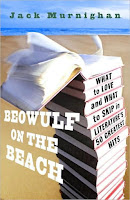Ring out, wild bells, to the wild sky,
The flying cloud, the frosty light:
The year is dying in the night;
Ring out, wild bells, and let him die.
Ring out the old, ring in the new,
Ring, happy bells, across the snow:
The year is going, let him go;
Ring out the false, ring in the true.
Ring out the grief that saps the mind,
For those that here we see no more;
Ring out the feud of rich and poor,
Ring in redress to all mankind.
Ring out a slowly dying cause,
And ancient forms of party strife;
Ring in the nobler modes of life,
With sweeter manners, purer laws.
Ring out the want, the care, the sin,
The faithless coldness of the times;
Ring out, ring out my mournful rhymes,
But ring the fuller minstrel in.
Ring out false pride in place and blood,
The civic slander and the spite;
Ring in the love of truth and right,
Ring in the common love of good.
Ring out old shapes of foul disease;
Ring out the narrowing lust of gold;
Ring out the thousand wars of old,
Ring in the thousand years of peace.
Ring in the valiant man and free,
The larger heart, the kindlier hand;
Ring out the darkness of the land,
Ring in the Christ that is to be.
While New Year's Eve is certainly a time for celebration, I have always had a greater fondness for New Year's Day. The idea of being able to make a fresh start holds enormous appeal, and a new year gives us the opportunity (at least in theory) to get rid of all of the problems and baggage from the previous year.
"Ring Out, Wild Bells" is perhaps the perfect poem to end the year. Besides calling to mind the sounds of celebration, it also reminds us the importance of ringing out the old, destructive tendencies that we have while replacing them with more benevolent behaviors and ideas.
Here's to 2010 - may it have a larger heart and a kindlier hand than the past year.














